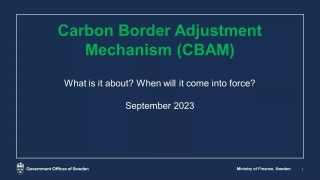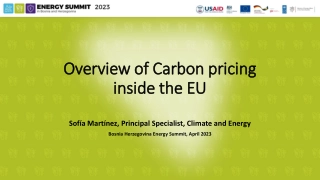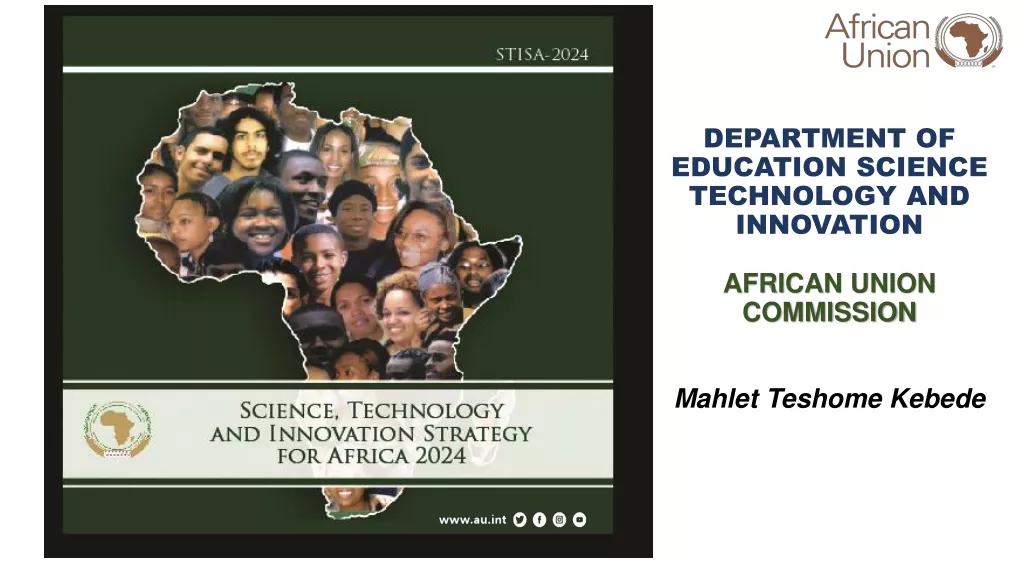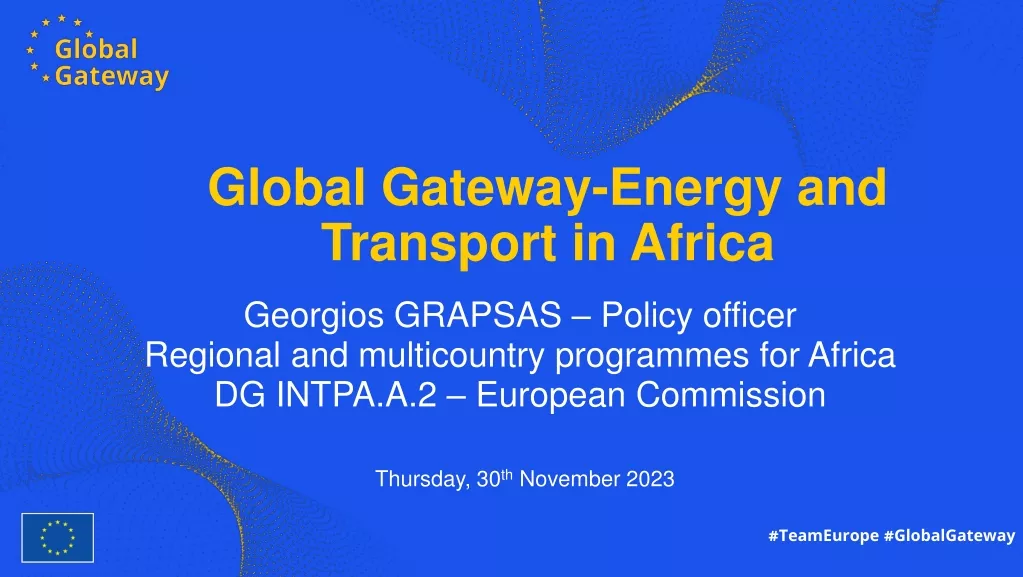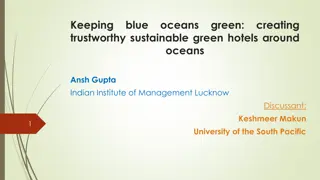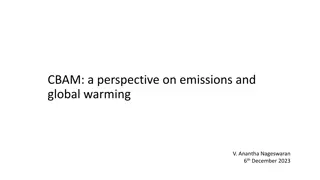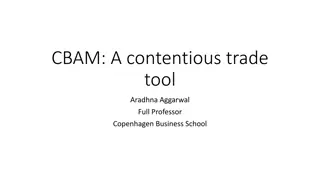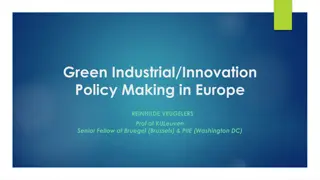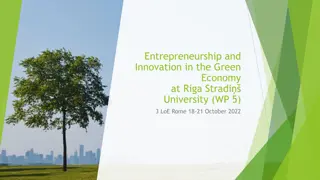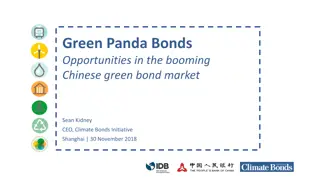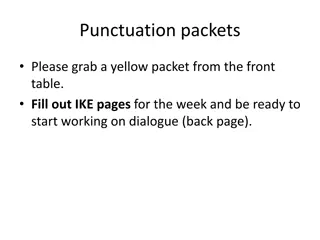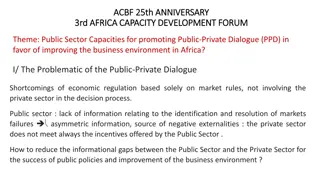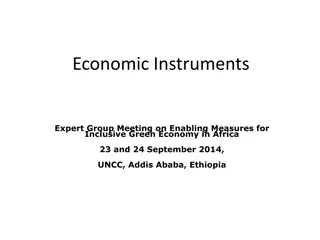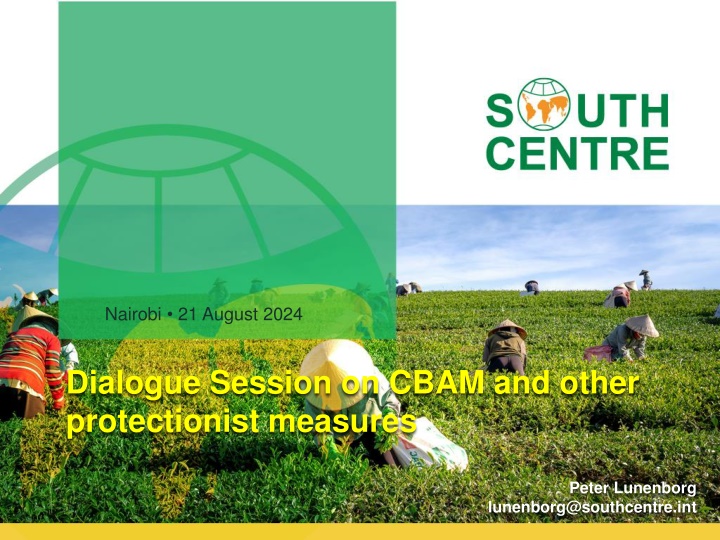
Dialogue Session on CBAM and Green Innovation in Africa
The impacts of the EU Carbon Adjustment Border Mechanism (CBAM) on African producers and green development. Discussing potential challenges, risks, and recommendations to align CBAM with international trade rules while promoting sustainability and innovation in Africa.
Download Presentation

Please find below an Image/Link to download the presentation.
The content on the website is provided AS IS for your information and personal use only. It may not be sold, licensed, or shared on other websites without obtaining consent from the author. If you encounter any issues during the download, it is possible that the publisher has removed the file from their server.
You are allowed to download the files provided on this website for personal or commercial use, subject to the condition that they are used lawfully. All files are the property of their respective owners.
The content on the website is provided AS IS for your information and personal use only. It may not be sold, licensed, or shared on other websites without obtaining consent from the author.
E N D
Presentation Transcript
Nairobi 21 August 2024 Dialogue Session on CBAM and other protectionist measures Peter Lunenborg lunenborg@southcentre.int
EU Carbon Adjustment Border Mechanism (CBAM) & green innovation and development in Africa? First, CBAM increases the costs of exports and directly affects the bottom-line of African producers. A good thing may be that it forces producers to produce greener. However, it could imply less money for R&D or expansion, in other words possibly crowding out investment to increase production Logic of CBAM is understandable in the presence of domestic Emissions Trading Systems. However, CBAMs should not be more discriminatory than ETS is for domestic producers and be it should be aligned and consistent with international trade rules (WTO and FTAs) Some issues include Working capital tied in CBAM certificates required to be held into an account There is no secondary financial market for CBAM certificates vis a ETS allowances Implementation of the Verification provisions under CBAM creates knowledgebase in CBAM countries but not in African countries Impossibility to use carbon credits from green investments to offset CBAM obligations No additional access to technical knowledge/technology/finance for reducing CO2 emission intensity Taxes collected from African exports would be used for domestic purposes
https://www.southcentre.int/policy-brief-124-5-february-2024/https://www.southcentre.int/policy-brief-124-5-february-2024/
EU Carbon Adjustment Border Mechanism (CBAM) WTO inconsistencies Non discrimination Compliance with other relevant WTO disciplines (e.g. Trade Facilitation Agreement and guarantees, Import Licensing Agreement)
Mitigating risks Delay implementation of CBAM Challenge WTO inconsistencies CBAM Implementing Regulations might fall under TBT Agreement and thus comment procedures apply (see. e.g, DS600). Recommendation for 60 days during which the adoption process is frozen and written comments can be sent on the proposed measure https://ec.europa.eu/growth/tools-databases/tbt/en/about-tbt/the- notification-procedure-in-brief/
Mitigating risks CBAM softening Sharing of data to 3rd countries that EU receives under CBAM Provision of data in 1st phase what kind of data should companies provide? Overestimate or underreporting of CO2 Technical assistance, in particular for MSMEs Resource recycling (not only LDCs but perhaps based on reduction potential) Recognition of equivalent efforts/carbon credits Open up verification of CO2 emissions to African based experts, which would create a cadre of professionals with knowledge and reduce costs for verification of emissions Involvement in CBAM Implementing Regulations
Mitigating risks EU Concessions to South Africa in SADC EPA CBAM seems inconsistent with EU s tariff commitments in SADC EPA rebalancing Art 23.1. A customs duty shall include any duty or charge of any kind, including any form of surtax or surcharge, but shall not include any: (a) internal taxes or other internal charges imposed in accordance with Article 40; or (b) duties imposed in accordance with Chapter II of PART II; or (c) fees or other charges imposed in accordance with Article 27. imposed on or in connection with the importation of goods
Mitigating risks Supporting action in WTO WTO Dispute Settlement WTO Committees Import Licensing Committee (CBAM should have been notified), TF Committee (guarantees), TBT Committee Development of guidelines for CBAMs possibly in WTO Technical Barriers to Trade (TBT) Committee See also https://www.netzerotrade.org/ Development of guidelines for the development and implementation of Trade Related Environmental Measures possibly in WTO Committee on Trade and Environment (CTE) Colombia, African Group made proposals
Thank you! FIND OUT MORE: www.southcentre.int @South_Centre South Centre, Geneva SouthCentre GVA

